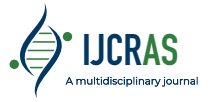| Title: OCCUPATIONAL AND HOUSEHOLD BURDENS OF MALARIA ON UKWUANI-NDOKWUA FEDERAL CONSTITUENCY OF DELTA STATE, NIGERIA. |
|
Author: Osai, Doris Obiajulum and ADJENE Josiah Obaghwarhievwo |
|
Abstract: This study examined the occupational effects of malaria burden on selected households. Using the clustered sampling technique, four hundred and sixteen (416) participants were ethically selected from the human population of the Ukwuani-Ndokwua federal constituency of Delta State, Nigeria. A self-structured questionnaire was then used to fetch sociodemographic, occupational, and daily spending records on malaria infections in households. The research questionnaire was validated by specialists, medical professionals, and researchers in public health. Participants were also given a pre-test to administer, allowing for reliability testing. While comparing differences in mean for obtained records with the one-way analysis of variance (ANOVA), results were presented as mean ± SD as p-values < 0.05 was adjudged as statistically significant. On malaria infection records, results showed a mean and standard deviation of 3.29 and 0.69, implicative that it impacted persons of all economic levels on average at a rate of 3.36. This thus suggests that 2 (0.4%) of respondents were poorly informed, whereas, 70 (15.7%) of them had a fair level, with 374 (83.9%) having a good level of knowledge. On the household records on malaria infection, about 112 (25.1%) respondents reported that they spray insecticides daily before sleeping at night, while 176(39.5%) reported that they spray insecticides weekly in their house to prevent mosquito bites, 196(43.9%) reported there is always a standby mosquito net to help them curtail malaria, 176(39.5%) reported they don’t use any of the above mentions because of the high cost of such commodities. Due to the dearth of anti-malaria, it is especially true in regard to the financial burden that anti-malarial drug sales be heavily discounted in order to reduce the cost of malaria treatments. It is advised that effective awareness campaigns and sound belief systems be implemented in order to reduce the negative effects of religion on malaria treatment in the evaluated location. |
|
Keywords: Malaria Burden, Occupation, Ukwani LGA |
| PDF Download |
International Journal of Current Research and Applied Studies
An open access multidisciplinary journal, ISSN 2583-6781
